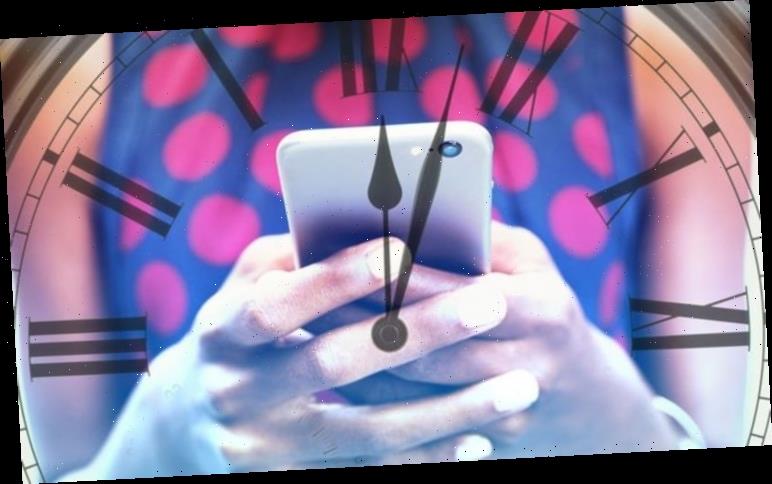We will use your email address only for sending you newsletters. Please see our Privacy Notice for details of your data protection rights.
Sunday, October 25, sees the clocks going back an hour at 2am in the UK, restoring the time to GMT. However, the tradition is facing a growing backlash, with Government facing calls to scrap clocks going back and to retain the BST throughout winter. But while the practice continues, people have been left wondering whether they need to update the clocks on their smartphones.
Do Apple iPhones automatically update when clocks go back?
Apple iPhone users have no need to worry about waking up on time as they drift off to sleep on Saturday evening.
They can sleep safe in the knowledge no alarms will go off late on Sunday morning.
Now in its 12th iteration, Apple’s cutting-edge iPhone is more than capable of recognising any clock changes.
As a result, the iPhone will automatically turn back an hour, provided it is connected to WiFi.
There is consequently no need for owners to do anything at all, so if an alarm is for 6am on Sunday, it will activate at 6am GMT.
Do Android phones automatically update when clocks go back?
Android phone users actually need to exhibit a little more caution than Apple iPhone owners when it comes to the clocks going back.
Android users should always ensure their Automatic Updates are activated in settings.
But once this setting has been turned on, users do not have to worry about manually updating the time.
However, despite the fact your Android is now accurate, please remember clocks around your home and car may not update automatically, so they may well require a manual change.
A brief history of the clocks going back:
Clock times have been updated twice a year since 1916, following the Summer Time Act – with the exception of years during World War 2.
This temporal anomaly witnessed Britain operating two hours ahead of GMT in the summers between 1941 to 1945, while running on British Double Summer Time.
This occurred as the clocks were not returned by an hour at the end of summer 1940.
But ever since, clocks are advanced by an hour in spring and held back by an hour with the arrival of autumn.
DON’T MISS
Don’t turn back the clocks! Pressure to keep BST to help tourism [REPORT]
How to sleep: Three ways to help your sleep pattern [INSIGHT]
Clocks Change 2020: EU voted to SCRAP daylight saving time – why? [EXPLAINER]
Daylight saving time was designed in a controversial attempt to make better use of the light.
When clocks are moved backward an hour in the autumn, an hour of daylight transfers from evening to morning, when it is considered most useful.
However, The Royal Society for the Prevention of Accidents (RoSPA ) now claims there are a host of “negative impacts on the way we live our lives” when the clocks annually go back.
And they consequently think keeping BST this year is “particularly important” due to the coronavirus (COVID-19) pandemic.
RoSPA said in a statement: “RoSPA has campaigned against the unnecessary clock change for many years, and is calling on the Government to instead keep British Summer Time all year round.
“We will all be able to enjoy more usable, evening daylight for more of the year, spending time and money doing the things we love.
“This is particularly important as the UK seeks to recover from the COVID-19 pandemic, to aid the economy and job market within sectors such as hospitality and leisure.”
The society also highlighted research from the RAC, which discovered road traffic collisions increase by 19 percent in the fortnight after transferring to GMT.
Source: Read Full Article




